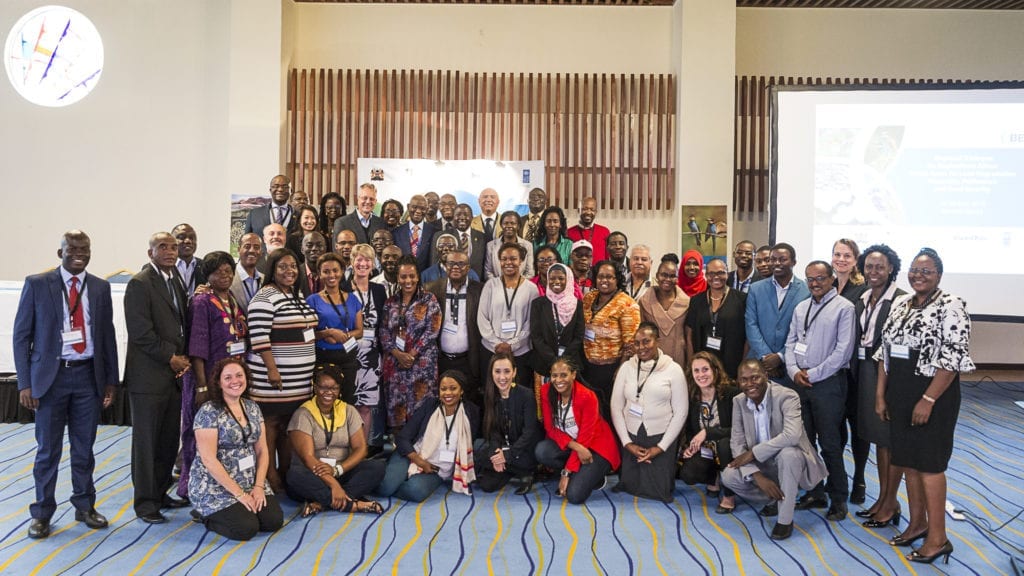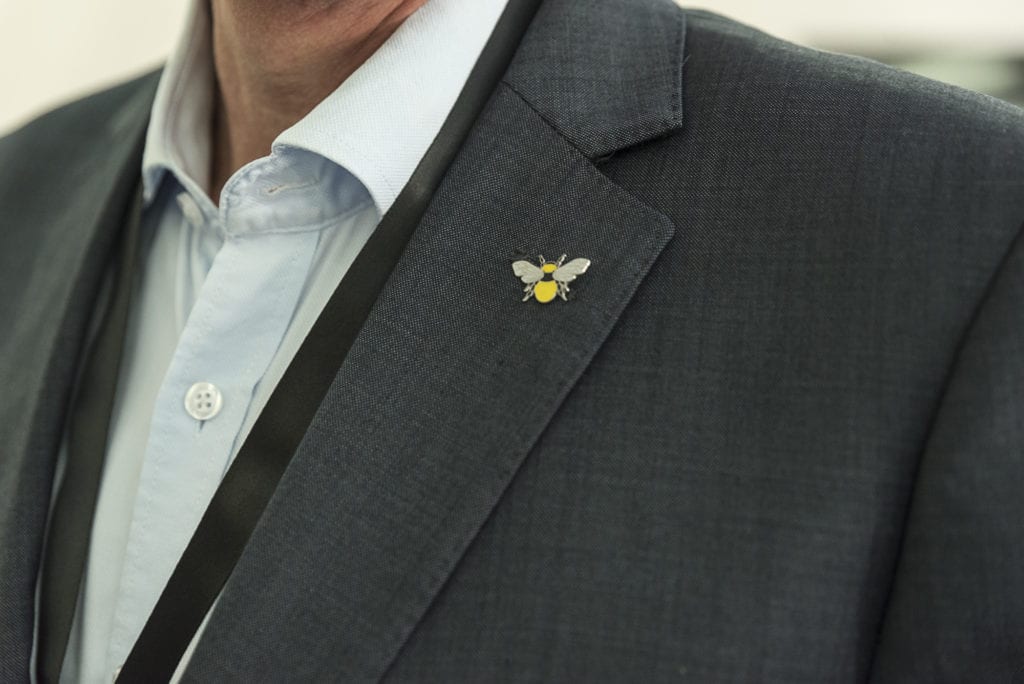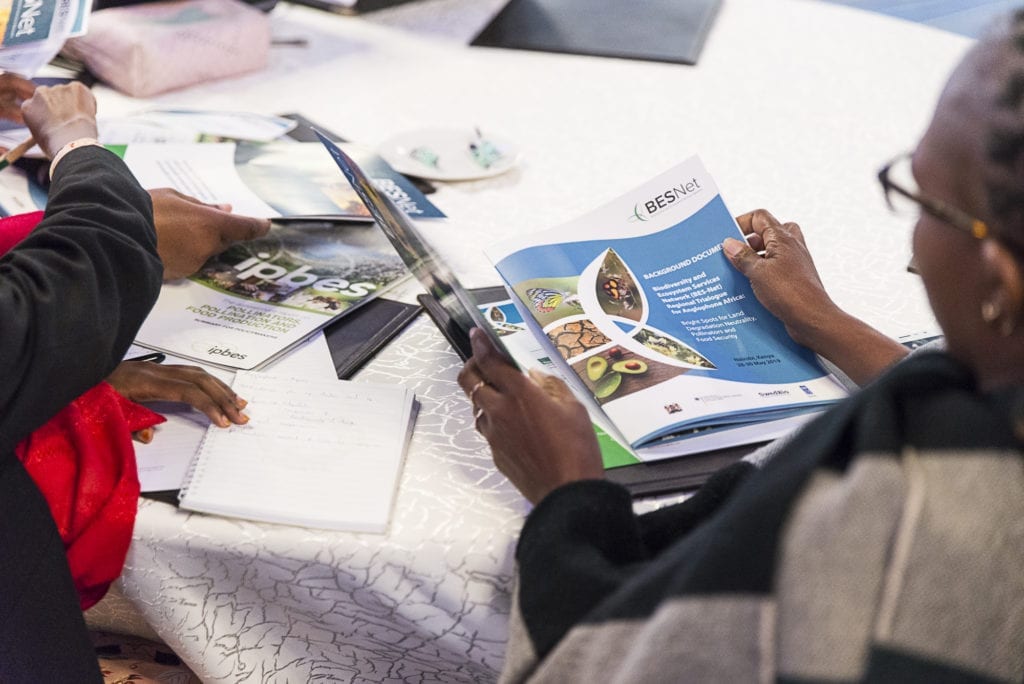Central Asia Trialogue on Land Degradation, Biodiversity and Climate Change
From the 9th to the 11th of October 2019 academic scientists, policymakers and practitioners with indigenous and local knowledge in the region gathered in Almaty, Kazakhstan, for the Central Asia Regional Trialogue on Land Degradation, Biodiversity and Climate Change. The event was held as part of the Biodiversity and Ecosystem Services Network (BES-Net) initiative managed by UNDP’s Global Policy Centre on Resilient Ecosystems and Desertification. It was hosted by the Ministry of Ecology, Geography and Natural Resources of the Republic of Kazakhstan and financially supported by the German Federal Ministry of the Environment, Nature Conservation and Nuclear Safety (BMU).
The trialogue targeted six former Union of Soviet Socialist Republics countries in Central Asia: i.e. Azerbaijan, Kazakhstan, Kyrgyzstan, Tajikistan, Turkmenistan and Uzbekistan. Present were experts working in agriculture, environment, health, climate and related fields. During the trialogue, participants jointly reviewed the regional report and the key messages of two inter-linked IPBES thematic assessment reports:


The participants assessed the relevance of the regional and IPBES-reports in relation to the ongoing efforts to achieve SDG 15.3/Land Degradation Neutrality (LDN) and other land-related SDG targets. At the end of the Trialogue, a High-Level Segment was held on the 11th of October to present the preliminary outcomes of the Trialogue to high-level government authorities, donors and partners.
Recap: Anglophone Africa Regional Trialogue
The Central Asia Regional Trialogue on Land Degradation, Biodiversity and Climate Change is one in a series of Trialogues held across the world. From 28 to 30 May this year, a Regional Trialogue was held for Anglophone Africa, on “Bright Spots for Land Degradation Neutrality, Pollinators and Food Security” in Nairobi, Kenya.
In Anglophone Africa, land-based activities are fundamental to human livelihoods and well-being. Therefore, countries in the region have been committed to combat desertification, restore degraded land and soil, and strive to achieve a land-degradation-neutral world. In order to make progress in these fields, efforts are made to inform land use and management decision-making effectively at regional, national and local levels. In doing so, it is of critical importance to stress how biodiversity and associated ecosystem services (e.g., pollination, pest control, soil carbon) contribute to food security, climate change resilience and sustainable development.

At the Regional Trialogue for Anglophone Africa on “Bright Spots for Land Degradation Neutrality, Pollinators and Food Security” the themes of land degradation and pollination were brought together. Academic scientists, policymakers and practitioners with indigenous and local knowledge jointly reviewed the key messages of the two inter-linked thematic assessment reports produced by IPBES, which will also be discussed in the Central Asia Regional Trialogue, namely:
- Thematic Assessment Report on Land Degradation and Restoration
- Thematic Assessment Report on Pollinators, Pollination and Food Production
The attendees together assessed their relevance in the ongoing efforts to achieve Land Degradation Neutrality (LDN) and other land-related targets. In addition the Trialogue discussed the relevant findings and recommendations from the Regional Assessment Report on Biodiversity and Ecosystem Services for Africa.



Present during the Trialogue were representatives of six countries within the region who are members of IPBES and have established their LDN targets: Kenya and Ethiopia from East Africa; Malawi and Zambia from Southern Africa; and Ghana and Nigeria from West Africa. The three-day event was hosted by the Ministry of Environment and Forestry in Kenya, and held in collaboration with IPBES, the United Nations Convention to Combat Desertification (UNCCD)7 and the Coalition of the Willing on Pollinators. Financial support was provided by the German Ministry for the Environment, Nature Conservation and Nuclear Safety and SwedBio at the Stockholm Resilience Centre.
The Trialogue brought together the three communities of government policymakers, academic scientists and practitioners – including some with indigenous and local knowledge – working in agriculture, environment, health, climate and related fields. Participants jointly explored the opportunity for “bright spots” of practical measures that harness biodiversity and ecosystem services in ways that simultaneously contribute to the achievement of the Shared Development Goals on food security and land degradation neutrality, the post-2020 global biodiversity framework and Africa 2063.
The outcome of the Trialogue is summarized in the Anglophone Africa Regional Action Document on Land Degradation Neutrality, Pollinators and Food Security.
